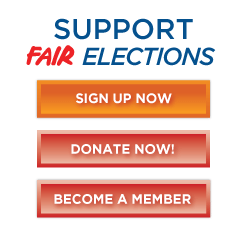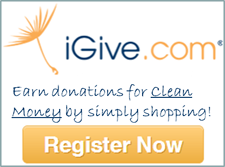San Francisco, CA -- After increased evidence of Russian
attempts to undermine U.S. elections, including reports by
the Department of Homeland Security that Russians targeted
voter rolls in 21 states and successfully broke into more
than one state's official database of voters, the
California Clean Money Campaign has joined elections and
security experts calling for expedited development of
public, open-source paper ballot voting systems to increase
the security and transparency of our elections.
"Americans fear for the security of our democracy. Public,
open-source paper ballot voting systems would dramatically
increase the security and transparency of our elections",
said Trent Lange, President of the California Clean Money
Campaign. "That's why the California Clean Money Campaign
joins open-source and electoral reform advocates lauding
San Francisco for its Open Source Voting System Project. We
encourage San Francisco to fully fund and develop it as
quickly as possible."
Private proprietary voting systems are fundamentally
insecure. A top-to-bottom review of certified voting
systems by the Secretary of State in 2007 uncovered serious
security flaws including the ability to change vote totals.
The report concluded that "The security mechanisms provided
for all systems analyzed were inadequate to ensure accuracy
and integrity of the election results." Many of these
security flaws still haven't been addressed. At the 2017
DEF CON security conference testing proprietary voting
systems "every piece of equipment …
was effectively breached in some manner". The final DEF CON
report concluded it was a "national security threat".
San Francisco County is currently completing the initial
planning phase of a project to replace proprietary voting
systems with a more secure open-source system using paper
ballots. If it uses the GNU General Public License 3.0 for
open source as currently planned, all counties in
California -- and the rest of the country -- will be able
to freely use or build on San Francisco's system for their
own elections, with their improvements also being
publicly-available for other jurisdictions. The San
Francisco Elections Commission has unanimously requested $4
million for the first stages of open-source
development.
"At a time of crisis of confidence in our elections
systems, San Francisco has the opportunity to lead
California and the nation to more transparent and secure
elections by rapidly finishing development and
certification of its public, open-source paper ballot
voting system", said Trent Lange. "All counties will be
able to build on the resulting system to lower costs and
increase security and confidence in elections."
Efforts to replace inherently insecure proprietary voting
systems with open-source systems date back to 2004 with the
founding of the Open Voting Consortium and the proposal of
its founder, Alan Dechert, to build open-source voting
systems to print and count paper ballots verified by
voters. The California Association of Voting Officials
estimates that such systems would not only be more secure,
but would also cut costs to jurisdictions by half compared
to proprietary systems from corporate vendors.
San Francisco's Open Source Voting Project is also endorsed
by other organizations including California Association of
Voting Officials, California Common Cause, Code for San
Francisco, Electronic Frontier Foundation, FairVote,
GitHub, National Election Defense Coalition, Open Source
Initiative, Open Source Election Technology Foundation,
Represent.Us San Francisco, Voting Rights Task Force, and
both the San Francisco Democratic Party and San Francisco
Green Party.
A survey of California Clean Money Campaign's more than
110,000 California supporters found that expediting
development of San Francisco's open-source system was one
of our activists' top priorities.
#####
The California Clean Money Campaign is a non-partisan
501(c)(3) organization that has been dedicated to educating
the public about the need to lessen the unfair influence of
Big Money on election campaigns since 2001. For further
information, visit www.CAclean.org.



